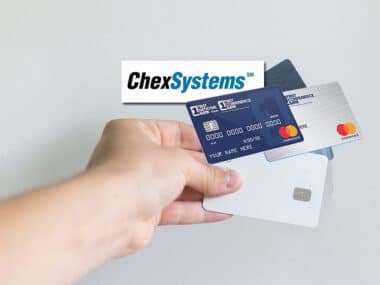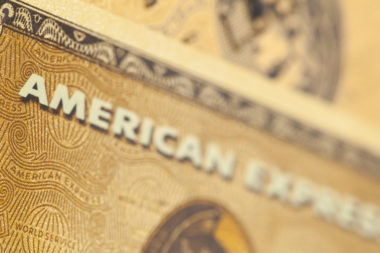It’s the start of your great backpacking trip through Europe. You touched down a couple days ago, staying in a major city before commencing the backpacking portion of your trip. Until now, you’ve been able to get by on credit cards. In a tiny town, none of the shops are accepting cards. Transaction fees are too high on the merchant’s end, they explain. Should you have carried cash with you, instead of risking relying solely on cards?
Travel with Cash
The first rule of traveling is always have cash — even if it’s a backup and you intend on being mostly in big cities. In Europe, for instance, travel expert Rick Steves notes day-to-day spending is usually based around cash.
While it’s a good idea to pay for big-ticket items, like hotels and rental cars, with a credit card, pay for smaller purchases such as bus or subway tickets, taxis, local guides, and purchases in gift shops with cash. Some may simply not accept credit cards at all, even in a big city.
Europeans do not use credit cards nearly as much as Americans, in part because merchants must pay a commission on every purchase made in their shop. As such, smaller mom-and-pop shops often will not accept a card, as they don’t want to pay the fee. That awesome Italian ice cream shop? Cash only. That quaint B&B in the Swiss Alps? Waves away your card, but takes your cash.
You, too, will need to pay a transaction fee on any card purchase, and exchange rates differ between credit card lenders. If you are making many small purchases, regardless of whether the shop takes cards, you may still want to opt for paying in cash.
Traveling Smart
You’ll need to travel smart when abroad, as, unlike a stolen credit card, you won’t get any cash back that slips out of your pocket and into an enterprising thief’s hands.
The first thing you should do when you land is use a debit card at an ATM and get local currency. Beware anyone offering to help you with the ATM, as fraudsters will try to target you and steer you towards their ATMs with skimmers attached. Exchanging money before traveling is not advised, unless you are traveling to parts of Asia or Africa, or any developing country. Plan ahead and do research on where the best places to exchange currency are. Exchanging with a street vendor will mean losing money on your end — they will not give you a fair trade. Instead, use banks or exchange bureaus.
Just as you wouldn’t keep all of your eggs in one basket, under no circumstances should you have all of your cash in one place. Traveling safely with cash while abroad means outsmarting fraudsters and thieves. Even cash belts are no longer safe — pickpockets have figured out how to cut them and take your money. Still, on-body storage is still the best. Bras, long johns, and even regular underwear will now come with a built-in pocket specifically to stash travel cash.
How much cash can you travel with? That depends on how safe you feel. In places where cash is still king, you’ll want notes of both small and large denominations. Remember, spread them out in hiding places, and consider carrying a cheap dummy wallet.
There are also bags meant for travel, with metal cables in the shoulder straps, preventing them from easily being cut. It will, at least, slow a thief down.
Be safe in your hotel and rental car, as well. Do not leave anything out in the open when you are not around, and utilize hotel safes. Anything valuable that a thief can see inside a car means you will likely come back to a broken window and items missing — or the entire car gone.
Bring a Card
Relying on just cash, however, has its own set of consequences. If you do lose all of your money, it is gone. There is no real recourse. Losing a credit card is a hassle, but you will get a new card, and any money that is spent as part of fraud will be returned to you.
Having a credit card as a backup is still recommended, especially if you are staying in cities. The security of being able to pay, especially if you can’t find an ATM and don’t have enough cash, is worth the fees associated with using a card.
It is important to note that countries outside the US, especially in Europe, have moved to chip-and-PIN technology, while credit cards in America are chip-and-signature, and not always accepted. This means your debit card will work (assuming it has an EMV chip) as it requires a PIN, not a signature, but your credit card may not. However, some lenders offer special credit cards meant to be used abroad that use a PIN instead of a signature. Check with your lender to see if this is an option.
The key to traveling with any type of money is to do your research and travel smart. Do you need cash beforehand, or can you wait until you get to your destination to get a better exchange rate? Do most places in your country of choice accept credit cards, or is cash still the most widely used payment method? Do you have a safe place to stash your cash, whether it’s a hotel safe, or on your person? Don’t flash a wallet full of money, and if possible, carry a dummy wallet to throw off thieves. The less you look like you have money, the less attractive you will be to pickpockets. Be safe, carry cash and a backup card, and go have awesome travel adventures.
Need more information on how to use a credit card while traveling? You can find more guides at the Fiscal Tiger credit card resource center.
Image source: https://pixabay.com/





